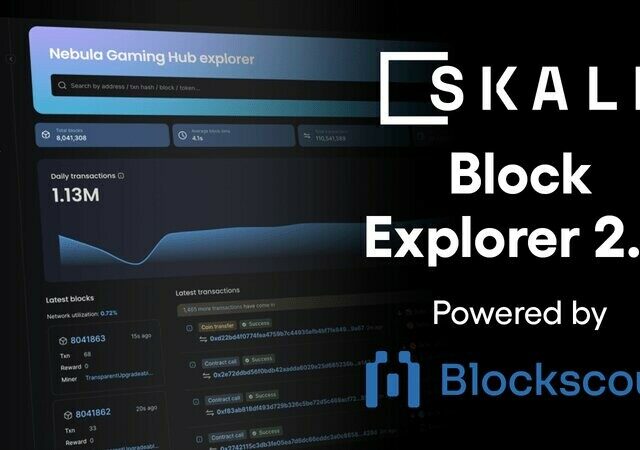- Unveiling the dynamic integration of non-fungible tokens (NFTs) into the music industry, reshaping how artists engage, monetize, and collaborate.
- Explore how NFTs revolutionize revenue streams, granting artists direct connections with their fan base while ensuring fair compensation through blockchain-stored royalties.
- Delve into real-world examples, from major Western artists like The Weeknd to K-Pop sensations, showcasing the profound impact of NFTs on the music landscape.
The non-fungible token (NFT) phenomenon, set to exceed $1.6 billion in 2023, is colliding with the robust $31.2 billion global music industry. This fusion is reshaping the landscape, creating a seismic shift in how musicians create, engage, and monetize their art.
NFTs in Harmony with Music
In a transformative wave, artists are leveraging NFTs to redefine digital ownership and fan interactions. The head of Korea at Ava Labs, Justin Kim, highlights how NFTs enable innovative digital art forms, fostering unique connections between musicians and their audiences.
Digital Relationships Beyond Borders
Artists adept at intertwining online and offline worlds through NFTs create lasting digital relationships. Khalid Jones, co-founder of Ultimate Playlist, emphasizes that entering the NFT space provides a direct and enduring connection with the fan base, avoiding middlemen and revolutionizing monetization.
Royalties in the Blockchain Symphony
NFTs bring a paradigm shift by enabling musicians to earn royalties securely stored on the blockchain. Tyler Adams, CEO of COZ, notes that this trend empowers artists financially, ensuring equitable distribution and control over their work.
Pioneers Leading the NFT Melody
Western and K-Pop giants like The Weeknd, Snoop Dogg, and Shawn Mendes have launched their NFTs, showcasing the industry’s influence. NFTs foster stronger artist-fan communities, creating an interconnected ecosystem.
Orchestrating Revenue Streams with NFTs
NFTs introduce novel monetization models, associating tokens with concert tickets, merchandise, and exclusive applications. COZ’s Adams explains how NFTs revolutionize revenue distribution, ensuring fair compensation for original creators.
A Fair Share for Creators
The traditional revenue division among producers, publishers, and artists often left creators under-compensated. NFTs reshape this, ensuring more equitable royalty distribution.
Concert Tickets Beyond Scalping
NFT concert tickets, powered by blockchain, tackle issues like ticket scalping. SK Planet in Korea started selling NFT tickets with resale removal features, securing economic benefits for artists and fans.
Elevating Fan Engagement through NFTs
NFT technologies offer fans unique, verifiable digital assets, revolutionizing interactions with favorite artists. Direct engagement with fans becomes more enjoyable, with NFT concert tickets serving as proof of attendance and collectibles.
VIP Pass to Exclusive Experiences
NFTs grant fans VIP access to exclusive content, both online and in real life. Ultimate Playlist’s Jones cites examples like NFT sales for Coachella Keys, offering lifetime passes and additional benefits worth $1.5 million.
NFTs and Music: A Collaborative Crescendo
Integrating NFTs in music not only transforms monetization but also fosters collaboration between musicians, visual artists, and technology experts.
Pushing Boundaries in the Digital Space
Musicians, artists, and technologists collaborate to explore the endless possibilities of the NFT space. Ava Labs’ Kim notes how rising Web3 artists receive support through programs like Avaissance.
A Collaborative Cosmos
Artists and visual creators unite independently, creating NFT artwork and pushing the technology to new horizons. NFTs become a platform for collaboration and limitless creativity.
The Future Symphony of NFTs and Music
Ava Labs’ Kim envisions NFTs widely combating illegal tickets, leading to enhanced fan engagement. NFT technology’s power lies in building stronger, independent communities around artists, serving as effective marketing platforms.
NFTs: A Proxy for Technological Utility
Despite an 80% dip in the NFT market, Jones emphasizes viewing NFTs as a proxy for technology’s utility. Unique, thoughtful experiences that blend technology with real-world interactions will drive sustained interest.
Redefining Distant Relationships
Adams concludes that NFTs bridge the gap between digital and physical worlds, redefining distant relationships. Access to exclusive chat rooms, online events, and personalized engagements using NFTs deepens the connection between musicians and their fan base.
In essence, the fusion of NFTs and the music industry is a symphony of innovation, reshaping how artists connect, monetize, and collaborate, heralding a future where digital and physical boundaries blur seamlessly.
Conclusion
In conclusion, the symbiosis of non-fungible tokens (NFTs) and the music industry emerges as a transformative force, redefining how artists connect with their audience, reshape revenue models, and foster collaborations. As blockchain technology continues to weave its way into the fabric of the music landscape, the future holds exciting possibilities for artists, fans, and the industry at large. NFTs stand not only as collectibles but as catalysts for innovation, offering a unique bridge between the digital and physical realms, creating unprecedented opportunities for musicians to thrive in this evolving musical ecosystem.
Disclaimer
The information provided in this article is for informational purposes only and should not be considered financial advice. The article does not offer sufficient information to make investment decisions, nor does it constitute an offer, recommendation, or solicitation to buy or sell any financial instrument. The content is opinion of the author and does not reflect any view or suggestion or any kind of advise from CryptoNewsBytes.com. The author declares he does not hold any of the above mentioned tokens or received any incentive from any company.
image source





